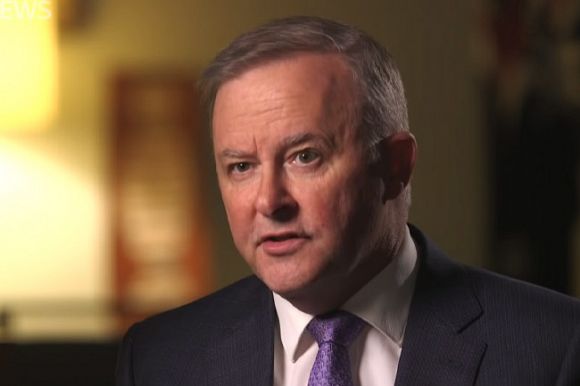Quality journalism is crucial to a healthy democracy because it holds power to account and informs the public when politicians are misbehaving, are corrupt, or incompetent.
The flip side of this coin is that when journalists do the opposite, when they assist politicians to misbehave, be corrupt or hide their incompetence, they are working against the interests of democracy.
This type of anti-journalism should not be given special status and should not be protected from scrutiny and consequences. When journalists are working against the interests of democracy, they rescind their special status and should bear consequences for intervening in a fair and robust democratic process.
A perfect example of this anti-democratic, anti-journalistic behaviour was Channel 7’s Jennifer Bechwati’s collusion with Scott Morrison on election day to highlight a Sri Lankan boat arrival.
The Labor Government’s inquiry into this matter has found that Morrison was asked about the boat arrival at the election day media conference by "friendly-plant" Jennifer Bechwati, before this information was publicly available. In the background, the Liberals were pressuring the public service to release this politically charged information, despite being in caretaker mode and despite their usual claims about not discussing "on water matters".
Bechwati was clearly happy to be provided with this "exclusive", and was happy to ask the Prime Minister about it, colluding with power in an effort to manipulate the public right when they were literally lining up to vote.
It seems ridiculous to even have to say this, but apparently it needs to be said. A real journalist – one with integrity and who worked to serve the public, rather than colluding with the powerful to manipulate voters – would never have agreed to be used in this way by Scott Morrison.
A real journalist would have told the public what the Prime Minister was up to and would have at the very least refused to ask a question that was so clearly politically charged.
The political-media conspiracy and interference on display in this case is shocking. The public was wronged by both the Liberal Government and the behaviour of Channel 7 and their journalist. Yet, the journalist would claim that they have special status and protection so should be immune from any consequence from this blatant wrongdoing. The idea that "I’m a journalist, so you can’t criticise/regulate me/hold me accountable. I was just asking questions" is the ultimate get-out-of-jail-free card.
This was no doubt, not an isolated incident.
The sad spectacle of Bechwati’s question reminded me of a recent discussion on ABC’s The Minefield where hosts Waleed Aly and Scott Stephens, and Professor of Politics and Public Policy, Katharine Gelber, discussed the highly contested question of whether Julian Assange is a journalist.
The reason it’s important to establish whether Assange is a journalist is that journalists have special free-speech protections because of their important democratic role in society. That is why, whenever the subject of regulation of news media is brought up, journalists invoke the "free speech" argument to claim that any regulation of their standards and consequences for misbehaviour, threatens the free and independent functioning of the media, and therefore threatens democracy.
I agree with journalists that the news media should be free from political interference and that an important part of journalists’ role in society is independence from the political systems they scrutinise.
However, I also see that much of Australian media is not using their special and protected status as journalists to maintain this crucial independence, but are instead becoming part of the political system by supporting particular political interests and people, like Bechwati did with Morrison.
When this happens, the public should have right to collectively correct the system through regulation. If journalists are not going to behave like journalists, they are political players and deserve no special protection.
Gelber made the point on The Minefield that the very concept of free speech was “developed in order to protect public discourse around things that matter to democratic self-governance, and to protect that discourse from excessive intervention by government”.
This concept has always given journalists special status and protections not afforded to people like Assange who, Gerber argues, didn’t meet the criteria of journalists because he didn’t exercise the pre-requisite “editorial restraint and prudence” about the information he published.
Whether you agree with Gelber and the other hosts of The Minefield about Assange’s status or not as a journalist, it’s time we started holding up actual journalists to just as high a standard.
Bechwati not only sided with the powerful Government she was meant to be scrutinising, and chose not to critique their gameplaying on election day, she also showed no editorial restraint or prudence in releasing the news of the intercepted asylum seeker boat. In doing so, she was not conducting journalism.
She was a political player. Political players give up all rights to the special status of journalists and should feel the consequences of doing so.
Dr Victoria Fielding is an Independent Australia columnist. You can follow Victoria on Twitter @DrVicFielding.
Related Articles
- Who is PRGuy? PRGuy is all of us
- ABC's 'Murdochracy' creep no accident
- Albanese’s miracle win mangles media’s Dutton narrative
- EDITORIAL: Albanese’s miracle win mangles media’s Dutton narrative
- Playing devil’s advocate or becoming the antichrist — a quandary at the ABC
 This work is licensed under a Creative Commons Attribution-NonCommercial-NoDerivs 3.0 Australia License
This work is licensed under a Creative Commons Attribution-NonCommercial-NoDerivs 3.0 Australia License
Support independent journalism Subscribe to IA.













